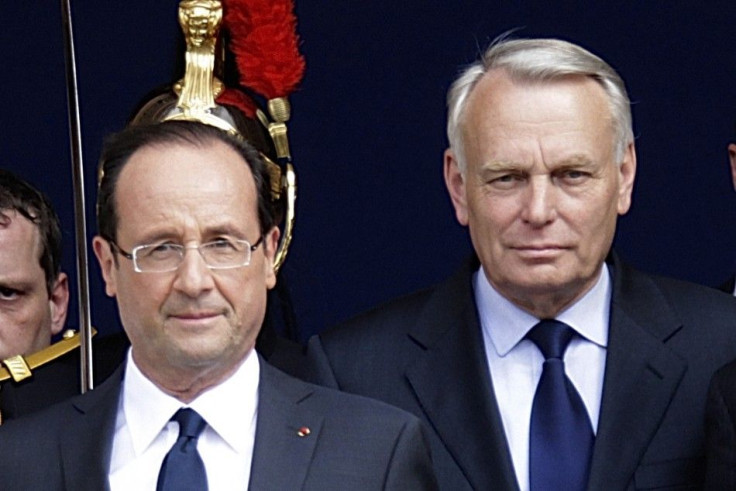Hollande Names German-Speaker Ayrault As Prime Minister

The newly elected president of France, Socialist Francois Hollande, has named Jean-Marc Ayrault as his prime minister, following Hollande’s official swearing in as the leader of the Republic.
Under the Fifth French Republic's system, the prime minister is mandated to run the government and can be removed from office by parliament through a no-confidence vote.
I will define the priorities, Hollande said at the Elysee Palace on Tuesday.
But I won't decide on everything for everyone and everywhere, suggesting that Hollande will not act as a micro-manager as his predecessor, Nicolas Sarkozy, did.
Ayrault, 62, has never before held a ministerial office but has long been a politician, including serving as mayor of the city of Nantes continuously since 1986. He is also fluent in German, a skill that may come in handy given that Hollande has the onerous task of trying to persuade German Chancellor Angela Merkel of the need to scale back austerity programs in Europe.
Sigmar Gabriel, chairman of Germany's leftist Social Democratic party, told the Wall Street Journal the Ayrault choice is a strong signal to Germany. He speaks excellent German and understands our political culture very well.
Ayrault served as an adviser to Hollande's campaign.
However, Ayrault does have some blemishes on his resume. In 1997, while serving as mayor of Nantes, he was found guilty of awarding a city contract without adhering to the required procedure of holding a public tender. He was given a suspended six-month prison sentence and fined 4,500 euros.
Ayrault has maintained that he did not benefit financially from that contract deal.
My personal integrity has never been questioned, he said.
I am an honest man and I will remain an honest man.
Separately, Hollande has retracted his previous position with respect to the pullout of French troops from Afghanistan.
During his campaign, Hollande vowed to withdraw all 3,400 French forces by the end of this year, at least one year earlier than envisioned by his predecessor Sarkozy.
Now he says the pullout will only involve combatants, although it is not clear which personnel are defined as “combatants.”
Moreover, withdrawing the entire French regiment by the end of 2012 might be logistically impossible.
Francois Heisbourg, a veteran military specialist at the Foundation for Strategic Research in Paris, told the Washington Post: “If it’s just a question of getting the boys out, that’s no problem. Hollande can say with a straight face that he carried out his pledge. But we also want to bring back their stuff, and it’s going to take a long time.”
Sarkozy himself had accelerated his planned pullout in January after an Afghan gunman shot and killed four French soldiers.
Hollande is likely to discuss the Afghan situation with U.S. President Barack Obama during their initial meeting on Friday.
© Copyright IBTimes 2025. All rights reserved.





















